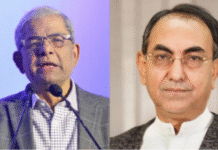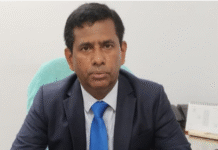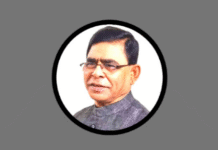A stalemate between Prime Minister Sheikh Hasina and opposition leader Begum Khaleda Zia has led to a three-day strike.
by Saif Khalid
As Bangladesh reels from the deaths of protesters and braces for three days of nationwide strikes, fears have been raised that the country’s system of democracy is under threat, with forthcoming elections altogether derailed.
In yet another “déjà vu moment” for the South Asian nation, the next transfer of power is being called into doubt amid tense political wrangling.
Opposition leader Begum Khaleda Zia of the Bangladesh Nationalist Party (BNP) is demanding that Prime Minister Sheikh Hasina resigns to make way for a non-partisan caretaker government to oversee the elections, which are due by early January 2014.
“We are talking of a non-partisan government, taking into consideration the political culture in Bangladesh. Political parties don’t trust each other during the election time,” BNP spokesperson Mirza Fakhrul Islam Alamgir told Al Jazeera.
Alamgir said his party was ready for compromise, but urged the government “to initiate the dialogue process”.
“We have requested the government invite us for talks. If they don’t invite us for talks then definitely people of this country will join the movement and the government would be forced to announce the caretaker government.”
Protests
The 18-party opposition alliance held rallies across the country on Friday, including in the capital, Dhaka, after the ruling Awami League Party rejected a BNP demand to step down by October 24. The reaction to the refusal has thrown the country into a fresh political crisis – a move that may not bode well for Bangladesh’s $22bn garment export industry.
At least six people were killed and more than 100 injured in the mass protests, and there are fears of more violence after the opposition called a three-day nationwide strike – starting from Sunday – to press for its demands.
“I am worried,” said Washington-based analyst Ali Riaz. “I am concerned that it might turn out to be a violent situation in the coming days, precisely because the government and the opposition are not agreeing to do something that can be worked out.”
The United States, the European Union and the United Nations have urged Hasina and Zia to hold talks and break the impasse.
The caretaker system of government would require the current government to resign three months before the end of its term. Hasina’s Awami League first called for a caretaker administration to oversee elections in 1995, when Hasina was in opposition. After a largely boycotted election in February 1996, the then-ruling BNP amended the constitution to create a caretaker government for fresh elections – a move overturned by Hasina’s government in 2011 during her second term in office.
Declining popularity
Hasina’s popularity has dwindled and the Awami League has lost five mayoral elections in recent months. According to opinion polls, the party has been trailing the opposition BNP by 11 percentage points.
The government has been criticised for mishandling the country’s worst factory disaster, in which more 1,000 garment factory workers were killed when the factory building collapsed. The building’s owner, who belonged to the ruling party, is now facing trial.
The Hasina government has also been tainted by a raft of corruption scandals, one of which led the World Bank to cancel a $1.2bn loan for a “mega-bridge” project.
There is a history of pre-election violence in Bangladesh. In 1996, two rounds of polls had to be conducted within a space of months because of violence, while the 2007 polls were aborted after supporters of both parties clashed – leading the military to install a caretaker government.
Democracy returned after the military-led government conducted elections in December 2008.
End of a deal?
The ruling party says the idea of election-time government was only for three elections, the last being 2008, but a highly politicised local bureaucracy and mutual distrust between the two dynastic parties makes it near impossible to hold an election acceptable to all.
“In 1996, we had a mutual agreement that three elections would be held under the caretaker government. So three elections have already passed, and there is no chance of going back to the caretaker government,” Mahbub-ul-Alam Hanif, Awami League spokesperson, told Al Jazeera.
“Begum Khalida Zia’s proposal is not acceptable. It is very difficult to establish a caretaker government. This proposal is not viable.”
But addressing a huge rally of her supporters in Dhaka on Friday, Zia, herself a two-time prime minister, renewed her threat to boycott polls – and set Hasina a new weekend deadline to hold dialogue.
“There will be no election under Hasina,” Zia told the crowds. “We won’t allow any one-party election. The election must include all parties and be conducted by a neutral caretaker government.”
The ruling party, which has insisted that the polls should be conducted under Hasina, has hinted that it may agree some sort of compromise.
“If the opposition parties come to the negotiating table we may talk about the issue,” the Awami League’s Hanif told Al Jazeera.
“Our leader has decided that the upcoming elections should be free and fair and with the participation of all political parties. To do this, we are ready to sacrifice positions.”
Olive branch
Fearing further chaos, Prime Minister Hasina on Saturday invited opposition leader Zia to her official residence, but the BNP leader has reportedly refused to meet the prime minister, and has vowed to go ahead with the three-day strike.
Such talks appear to offer the only ray of hope, but both parties seem intent on harsh rhetoric, and have presented little details of the forms of government they would want.
“Who would be the prime minister of… [a] caretaker government?” asked Riaz, of the Woodrow Wilson International Centre for Scholars.
“The second issue of contention that I see is the role of the parliament – whether it should stay or it should be dissolved. The third issue that remains contentious are the powers of the cabinet during the elections – whatever cabinet there is.”
The mutual distrust between the two leaders, known as “the battling begums” in Bangladesh for their decades-long rivalry, has not helped the cause, ensuring that politics in this poverty-stricken nation of about 160 million people remain bitterly divisive.
“Whereas the Hasina government is steadfast, they don’t want to make any compromise. And without having some sort of agreement on this, I don’t think an election that takes place under Hasina as prime minister would be acceptable to a large segment of the Bangladeshi population,” Riaz told Al Jazeera.
War crimes
This year has been particularly violent, especially in the wake of verdicts handed down by a war crimes tribunal set up in 2010 to try those accused of human rights abuses during Bangladesh’s 1971 war of independence from Pakistan.
The tribunal has so far convicted eight leaders of the BNP and Jamaat-e-Islami, the main Islamic party, sentencing six to death.
Jamaat was also barred by a court from contesting elections.
At least 150 people have been killed and more than 2,000 have been injured by police since the first verdict was announced in January, Human Rights Watch has reported.
“First of all, the war trial is something Bangladesh should have done a long time ago. It was a long overdue. To move forward, Bangladesh would have to close this chapter,” Riaz said.
“And there has to a trial of those who committed heinous crimes, genocide and crimes against humanity during the liberation war.
“Was this process perfect, absolutely not? There were many problems in the process of having this war crime trial. This could have been done in a better way, but these inadequacies don’t mean that these trials should not have been done,” he said.
Rival dynasties
Whether the future politics of Bangladesh will ever change remains to be seen, as the sons of both leaders have seemingly been groomed to take over their respective parties.
Zia’s son, Tarique Rahman, accused of corruption during his mother’s most recent term as prime minister, has even been named as the future leader on the party’s official website.
Despite the political instability, the country’s economy has grown by almost six percent in the past decade, and has shown some remarkable progress in terms of human development index and poverty alleviation.
The garment industry, which employs nearly four million people, constitutes almost 80 percent of the country’s total exports, but the government has reportedly done little to improve workers’ safety and labour wages.
“If the political parties can come together on basic issues such as governance, rule of law, corruption, regular system of transition of power from one government to another, Bangladesh would do far better,” said Riaz.
“Bangladeshi citizens are doing what is needed for the country, but it is the political leadership that is failing the country.”
Source: Aljazeera










